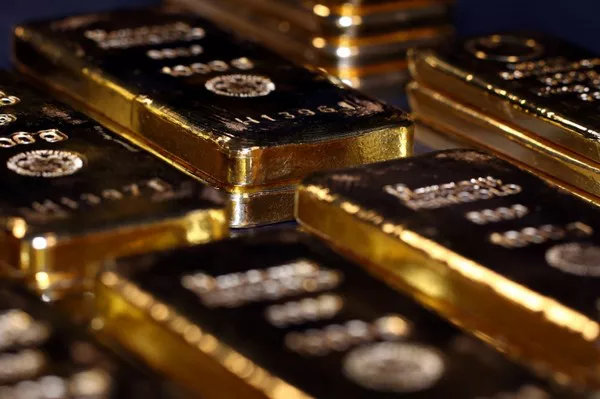As investors look ahead to the future, predicting the trajectory of spot gold prices becomes a crucial exercise. The gold market, influenced by a myriad of economic, geopolitical, and market-specific factors, is dynamic and subject to change. In this article, we will delve into the potential predictions for spot gold prices in 2024, considering key trends and expert analyses.
I. Current Market Dynamics
1. Inflation Concerns:
In recent years, inflation concerns have been a driving force behind gold’s performance. As central banks implement accommodative monetary policies and governments engage in stimulus measures, investors seek gold as a hedge against potential inflation.
2. Economic Recovery:
The pace of the global economic recovery will play a significant role in shaping gold prices. A robust recovery may reduce the appeal of safe-haven assets like gold, while economic challenges may boost demand for the precious metal.
3. Geopolitical Uncertainties:
Ongoing geopolitical tensions, trade disputes, and geopolitical uncertainties contribute to market volatility. Gold, often considered a safe-haven asset, tends to benefit during periods of heightened geopolitical risks.
II. Factors Influencing Gold Prices in 2024
1. Interest Rates and Monetary Policies:
The direction of interest rates, particularly in major economies, is a critical factor. Lower interest rates make non-interest-bearing assets like gold more attractive. The monetary policies of central banks will be closely monitored.
2. Inflationary Pressures:
The persistence and intensity of inflationary pressures will be a key consideration. Gold is historically favored as a hedge against inflation, and rising prices may drive increased investor interest in the precious metal.
3. Currency Movements:
Gold is priced in U.S. dollars, and currency movements can impact its value. A weaker dollar often leads to higher gold prices. Exchange rate fluctuations and the strength of major currencies will influence the USD-denominated price of gold.
III. Expert Analyses and Predictions
1. Analyst Forecasts:
Financial analysts and institutions regularly provide forecasts based on their assessments of market conditions. These predictions consider economic indicators, geopolitical events, and historical price trends.
2. Trend Analysis:
Trend analysis involves examining historical price patterns to identify potential future movements. Analysts may use technical analysis tools to identify trends, support levels, and resistance levels in the gold market.
3. Economic Indicators:
Economic indicators, such as employment data, GDP growth, and consumer sentiment, provide insights into the health of the economy. Analysts consider these indicators to assess the potential impact on gold prices.
IV. Potential Challenges and Risks
1. Economic Data Revisions:
Economic data is subject to revisions, and unexpected changes can impact gold prices. Unforeseen shifts in economic indicators may challenge accurate predictions.
2. Unpredictable Geopolitical Events:
Geopolitical events are inherently unpredictable. Unexpected developments can occur, rapidly changing market sentiment and influencing gold prices.
3. Market Sentiment Fluctuations:
Gold prices are influenced by investor sentiment, which can be fickle. Sudden shifts in sentiment, driven by news or events, may lead to price volatility.
V. Frequently Asked Questions
Q1: How accurate are spot gold price predictions?
Spot gold price predictions are based on thorough analyses of various factors, but they are not infallible. Market conditions can change unexpectedly, impacting the accuracy of predictions.
Q2: Can economic data revisions affect gold prices?
Yes, economic data revisions can impact gold prices. Revisions that deviate significantly from initial estimates may lead to market adjustments as investors reassess the economic landscape.
Q3: What role does the U.S. dollar play in gold price movements?
The U.S. dollar plays a crucial role in gold price movements. Gold is priced in dollars, and a weaker dollar generally boosts gold prices, making it more attractive to investors using other currencies.
Q4: How do geopolitical events influence gold prices?
Geopolitical events create uncertainty, prompting investors to seek safe-haven assets like gold. Events such as conflicts, trade tensions, or political instability can lead to increased demand for gold, influencing its prices.
Q5: Should I consider long-term or short-term factors for gold investment in 2024?
The investment horizon depends on individual preferences and goals. Long-term investors may focus on broader economic trends, while short-term traders may pay more attention to immediate factors influencing the market.
Q6: How often should I reassess my gold investment strategy?
Reassessing your gold investment strategy should align with changes in your financial goals, market conditions, and significant economic events. Regular reviews, especially during periods of market volatility, are advisable.
Q7: Is gold still a relevant investment in the era of digital assets?
Gold remains relevant as a traditional store of value and a hedge against economic uncertainties. While digital assets introduce new dynamics, gold’s historical role and stability continue to attract investors seeking diversification and security.

